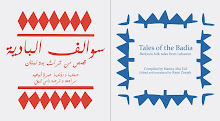Dear Laila kindly provided a translation of my previous post
We Are All Palestine
On Land Day, we remember every tree on your soil, Palestine. Every grain of sand in your soil, every flower of your spring. We bow down to every martyr, to every mother who fell so that her child could live, to every peasant harvested by the occupation. From the hills of your Galilee, we contemplate the calm of your Naqab. We breathe the perfume of your gardens and wash away our pain in your rivers.
Mother of the free, today we renew our oath to you: we shall return. We shall come to you in waves, to rest by your shores, as clouds to decorate your skies. We shall embrace every rock on your mountains and sleep in every furrow in your fields.
We shall plant ourselves in your land, we shall raise our voices in defiance. We shall plant ourselves here, steadfast.
On Land Day, we shall come to you from all over the world. From the narrow alleys of the refugee camps and from the cities of exile. From the plains, from the forests, screaming in the face of the occupier, letting him know what he already knows: You will leave. Know that you are going and that your presence is temporary.
Today, crowds will gather in Egypt, Jordan, Syria and Lebanon to renew their promise to return. Today, crowds will also gather in the land of Palestine to challenge the occupation and reinforce their Intifada.
Here, in Lebanon’s implacable South, the symbol of resistance, of liberation, the land of revolutionaries and heroes, in Jabal Amel, adorned with thyme and heather, we shall gather in the old fort, whose stones bear witness to the bravery of freedom fighters. We are here for you, Palestine. We are here for your Holy Jerusalem.
Palestine, our motherland, we come to you to declare our love and ask for your forgiveness. We have never forgotten you, but like all human beings, we are sometimes weak. We have not always been united and we know our sins. We bickered and argued. We sometimes lost our way.
But today, we are all here, united. We know that our strength comes from the justice of our cause, the unity of our ranks and the firmness of our principles. We are the sons of this land and its soul. We are the life that runs through its veins. We are the olive trees and the spring blossom. We are the mothers and the farmers. We are the martyrs and the living. We are all Palestine.








+081.jpg)


